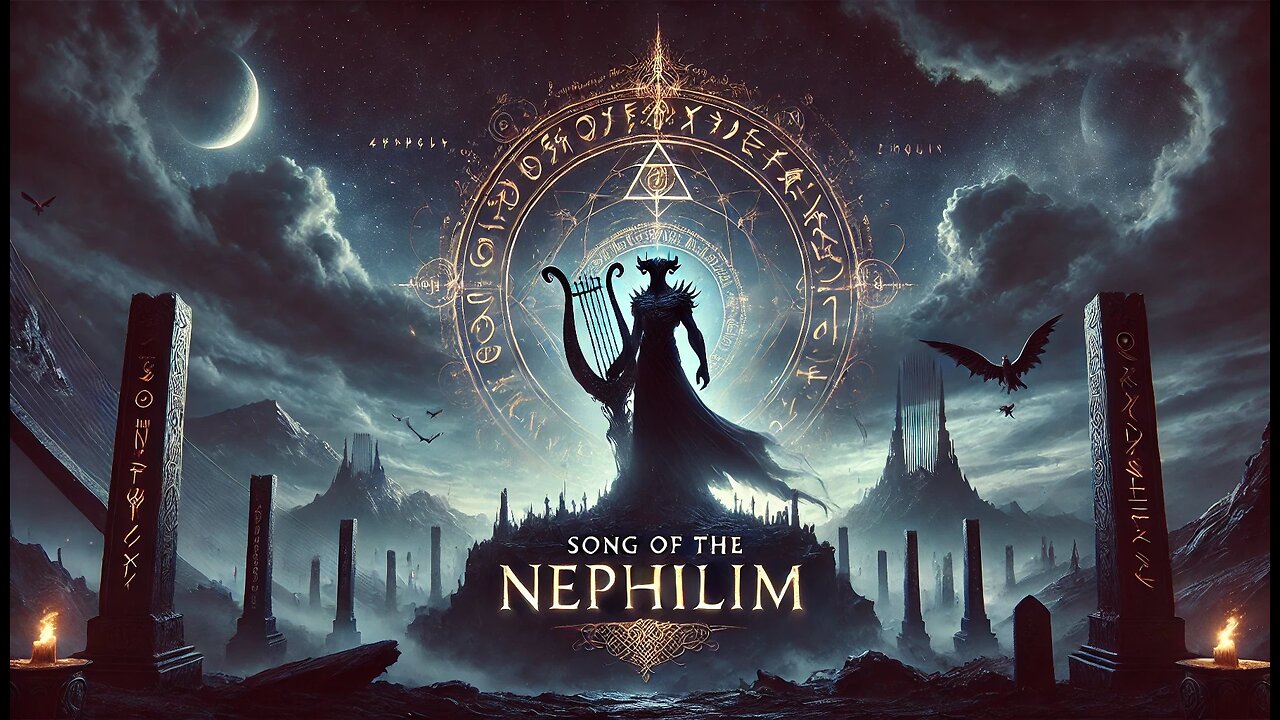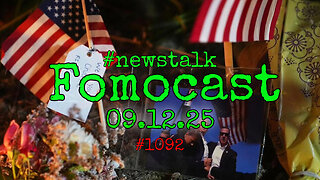Premium Only Content

Song of the Nephilim | Echoes in the Remnant
Their song is not preserved in scripture, but it lingers—in fault lines, in dreams, in the strange ache of being too much for the world that holds you. The Nephilim, children of heaven and earth, of angel and woman, were not merely giants of flesh—they were beings of tension: bound between realms, haunted by inheritance, undone by their own excess. But what was not redeemed in them resounds through their remnant—those who carry the echo of that ancient crossing within their blood.
The first vibration is Memory in the Body. The remnants do not remember through history—they remember through feeling. A strength that doesn't match the moment. A vision too wide for the frame. A loneliness that no intimacy can erase. These are not signs of error—they are symptoms of inheritance. The Nephilim were silenced, but their imprint remains: in bone, in dream, in myth. The echo is not whole—it is fragmented, scattered, half-sung. But it calls.
Then comes The Struggle of In-Between. The remnant are not quite at home in the world. They feel the pressure of divergence—the angelic impulse toward transcendence, the human ache for belonging. They often become bridge-beings: too strange for the common, too fragile for the divine. Their lives are often marked by rupture, brilliance, alienation. But the struggle itself is sacred. It is not failure. It is the friction of integration—the slow weaving of contradiction into coherence.
Finally, there is The Awakening of the Echo. At some threshold—of suffering, creation, initiation—the echo clarifies. What was once ache becomes signal. The remnant remembers not only the pain of the giants, but the possibility they carried: insight too large for one age, sensitivity too deep for hardened worlds. The echo becomes song again—not loud, not whole, but true. Through art, speech, presence, the remnant begin to give voice to what was exiled. Not to resurrect the fallen—but to transmute their legacy.
Memory, Struggle, Awakening—the triadic unfolding of hybrid inheritance. Memory deepened through struggle becomes Identity. Struggle opened by awakening becomes Calling. Awakening sourced in memory becomes Redemption—not of the Nephilim as they were, but of what they left behind in us.
This is not about fallen angels. It’s about what happens when power is inherited without a place to hold it, when vision outpaces form, when old myths whisper through modern veins. The remnant are not gods. They are thresholds—those who carry the unresolved past into futures wide enough to hold it. Their song is not loud. It is subterranean. But when it rises, the world remembers something older than scripture and newer than tomorrow: the unfinished symphony of the in-between.
-
 1:44:36
1:44:36
Megyn Kelly
23 hours agoRemembering Charlie Kirk, with Tucker Carlson, Donald Trump Jr., and Benny Johnson
33K85 -
 LIVE
LIVE
Nerdrotic
2 hours agoCulture Is VITAL! Streaming BUST, Warner Bros. Buyout | Friday Night Tights 371 with Vara Dark
1,861 watching -
 9:40
9:40
Lara Logan
1 hour agoHonoring Charlie Kirk - Going Rogue with Lara Logan - LIVE
12.1K22 -
 3:03:45
3:03:45
The Charlie Kirk Show
4 hours agoCharlie Kirk: A Life of Faith, A Legacy That Endures
424K353 -
 3:58:08
3:58:08
The Rubin Report
5 hours agoCharlie Kirk’s Best Moments on The Rubin Report
52.2K16 -
 UPCOMING
UPCOMING
FomoTV
16 hours ago🕯 Charlie Kick Assassinated — Radical Campus Rhetoric Made This Possible | Fomocast 09.11.25
5.31K3 -
 3:08:36
3:08:36
Right Side Broadcasting Network
5 hours agoLIVE REPLAY: Latest News from the Trump White House - 9/12/25
64.3K17 -
 LIVE
LIVE
Dr Disrespect
5 hours ago🔴LIVE - DR DISRESPECT DESTROYS BORDERLANDS 4 - INSANE LOOT, CHAOS & RAGE
1,244 watching -
 1:28:34
1:28:34
Mark Kaye
4 hours ago🔴 How Charlie Kirk's Killer, Tyler Robinson, Was Caught!
47K32 -
 59:58
59:58
Jeff Ahern
2 hours ago $1.27 earnedFriday Freak out with Jeff Ahern
18K1